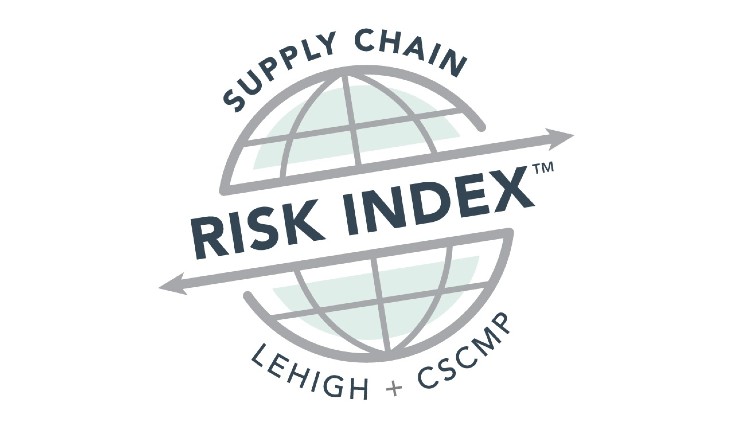The Lehigh Business Supply Chain Risk Management Index says Transportation Disruption Risk is expected to increase substantially for the upcoming 3rd Quarter and has become the number one concern for supply chain professionals. In fact, the transportation risk is at 86 which has been the highest number of any risk factor over the last five quarters.
Economic Risk at 82 and Supplier Risk at 80 are also above any previous risk values for the last five quarters. “Supply chain managers are telling us they are facing driver and equipment shortages, rail line delays and fears that international freight will not be back to full capacity in time for the holiday peak,” said Zach G. Zacharia, Ph.D., associate professor of supply chain management and director of the Center for Supply Chain Research at Lehigh.
The average risk index for the third quarter of 2021 is 69.35 which is more than two points higher than last quarter and the highest it has been since the LRMI was created in the third quarter of 2020 when it was 69.49.
The LRMI identified the same top four risk categories as last quarter, just in different rank order, for the third quarter of 2021 when compared head-to-head. They are transportation, economics, supplier risk and cybersecurity. The other six categories are government intervention, environmental, operational, technological, customer and quality risk.
“One of the advantages of examining supply chain risk is to consider how these risks change over time,” said Zacharia. There is a new table (on page four) showing the changing levels of the risk across the 10 different areas of the supply chain over the past four quarters. “It’s insightful to see that some areas of the supply chain are consistently seen as high risk and other areas as lower risk over this COVID-19 time period,” said Zacharia.
A unique aspect of the LRMI is that the quarterly reports include a sampling of candid comments from supply chain managers about each risk category that take you beyond the numbers. Comments from the third quarter report include:
- Lead time increases from Asia have settled in to predictable albeit plus 4 week by ocean. Air freight out of China costs 6-8x normal.
- Commodity price volatility will impact materials costs - steel and copper in particular.
- Electronics shortages and allocation mainly in microprocessors will put a stranglehold on the growing economy by 4Q. Certain plastic resins such as nylons and engineered resins are in very short supply and have not recovered from freeze in the Gulf Coast.
- Data risk is only increasing and we plan on spending additional resources to defend.
The LRMI was developed by the Center for Supply Chain Research at Lehigh University and the Council of Supply Chain Management Professionals to help rank 10 broad categories of supply chain risks.
“This report allows executives, not just supply chain managers, to look ahead and prepare for risks that will become important to manage in the future,” said Zacharia.
LRMI reports are available every quarter in September, December, March and June.
To get the latest report for free and to find out how supply chain managers can take the LRMI survey for the next quarter visit business.lehigh.edu/LRMI.


